
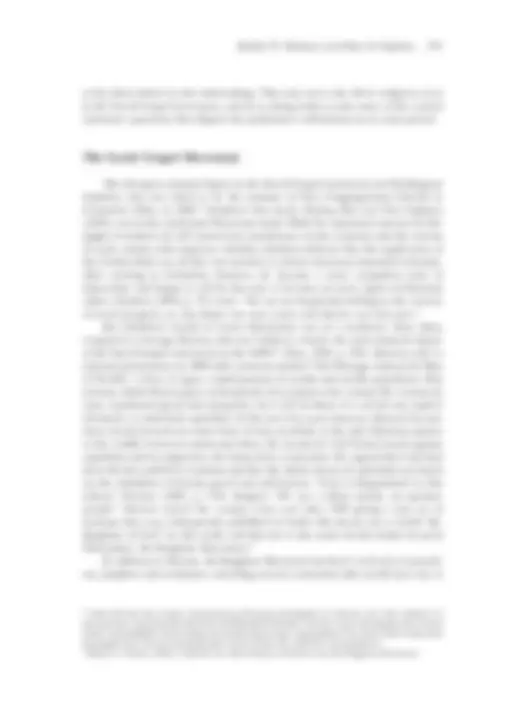
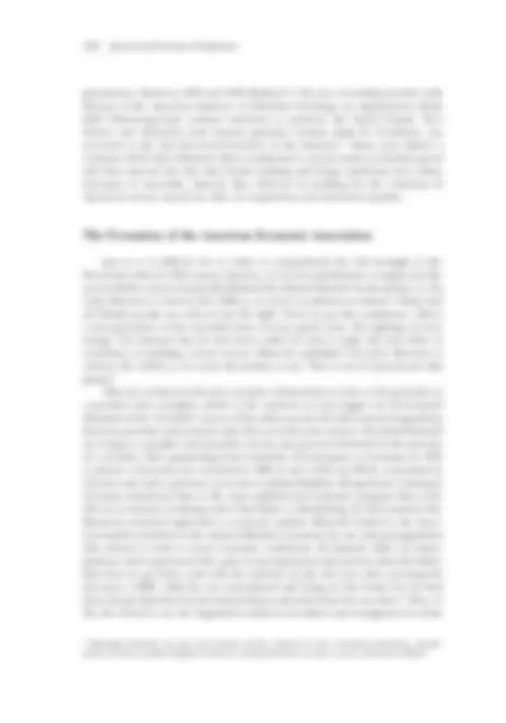
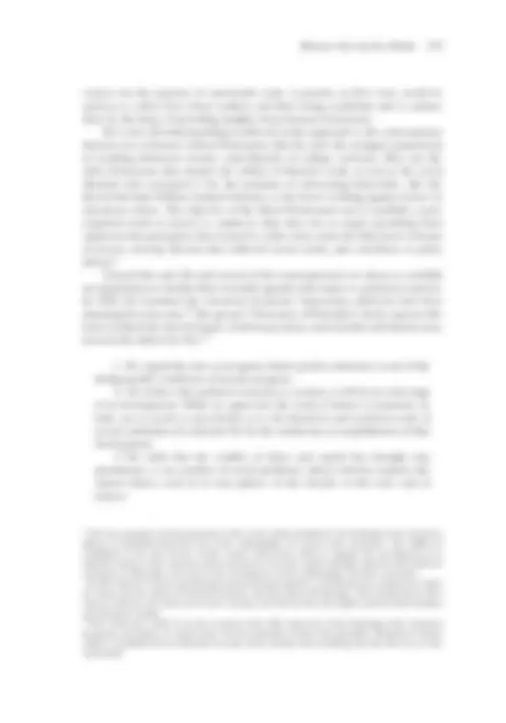
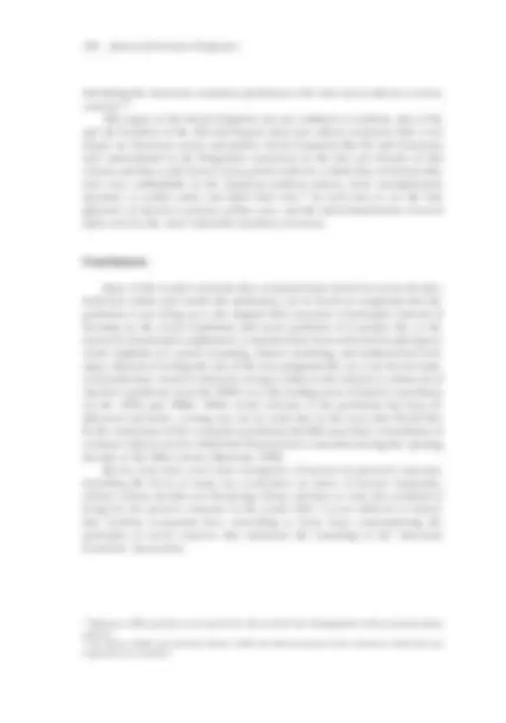
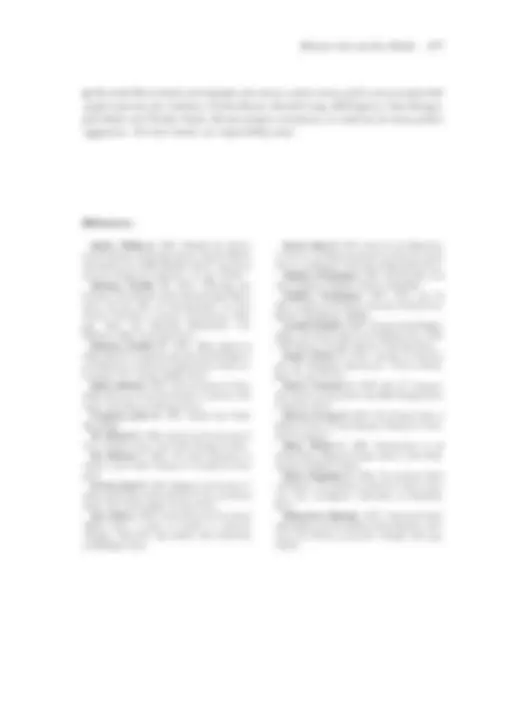



Study with the several resources on Docsity

Earn points by helping other students or get them with a premium plan


Prepare for your exams
Study with the several resources on Docsity

Earn points to download
Earn points by helping other students or get them with a premium plan
Community
Ask the community for help and clear up your study doubts
Discover the best universities in your country according to Docsity users
Free resources
Download our free guides on studying techniques, anxiety management strategies, and thesis advice from Docsity tutors
The influential role of Protestant churches and economists, many of whom were Protestant ministers, in advocating for laissez-faire economic policies in America during the 19th century. The text also discusses the emergence of the Social Gospel movement within Protestantism and the formation of the American Economic Association as an attempt to bring a particular view of Christian ethics into the economics profession. historical context for the development of economic thought in America and raises central normative questions that shaped the profession's self-identity.
Typology: Study notes
1 / 10

This page cannot be seen from the preview
Don't miss anything!







This feature addresses the history of economic words and ideas. The hope is to deepen the workaday dialogue of economists, while perhaps also casting new light on ongoing questions. If you have suggestions for future topics or authors, please write to Joseph Persky, c/o Journal of Economic Perspectives, Department of Econom- ics (M/C 144), University of Illinois at Chicago, 601 South Morgan Street, Room 2103, Chicago, Illinois 60607-7121.
American society has become increasingly secularized during the 20th century, to the extent that it can be difficult for us today to grasp fully the force of religion in earlier times. But in the 19th century, the American ethos was largely derivative of a Protestant self-identity. Moreover, through most of the 19th century, the Protestant churches were among the most vehement voices in American society in favor of laissez-faire economic policies and against the possibility of class conflict.^1 Not only was laissez-faire preached from the pulpit, but several of America’s most
(^1) For an excellent treatment of the evolution of arguments about laissez-faire and class in American society from 1770-1870, see Burke (1995).
Economics, Grinnell College, Grinnell, Iowa. Ethan B. Kapstein is Stassen Professor of International Peace, Hubert H. Humphrey Institute of Public Affairs, University of Minne- sota, Minneapolis, Minnesota.
Journal of Economic Perspectives—Volume 13, Number 4 —Fall 1999 —Pages 249 –
prominent economists in the 19th century were also Protestant ministers: both Francis Wayland (who became president of Brown University) and John MacVickar, for example, were prominent economics textbook authors who propounded a “secularized Protestant ethos of production for an expanding commercial society” (Burke, 1995, p. 61). Until the Civil War, American Protestants shared a set of common beliefs, despite their denominational differences. All groups, for instance, would have described themselves as evangelical Christians, because they believed in the literal truth of the Bible. But the decades after the war marked the end of this unity. After the Civil War, the Protestant world evolved into what Marty (1986) calls “the two party system”: one group of Protestants, the private party, focused on individual salvation; the other group, the public party, focused on social problems and their solution. The public party gained considerable ground in the last decades of the century, although it never achieved majority status. Because of the social position of those leading Protestants in the “public party,” and the checkered career of organized labor in 19th century, this emerging group of liberal Protestants prob- ably provided more sustained public exposure for arguments against laissez-faire than any other group in society. The most influential lay leader of what came to be called the “Social Gospel” movement within Protestantism was the economist Richard T. Ely.^2 By the late 19th century, he had become one of the best-known proponents of social Christianity in America and was quite literally a household name. By 1892, Ely’s books were being widely read by Protestants who gathered in various social unions, despite their academic character (Everett, 1946, p. 75). His first book, French and German Social- ism in Modern Times (1883) was an effort to investigate the principles of socialism objectively, without drawing a firm conclusion about its desirability. However, his second book, The Labor Movement in America (1886), challenged all the orthodoxies of the conservative, Protestant establishment. In particular, Ely advocated the right of workers to organize in their own behalf and to withhold their labor from the market when it would lead to higher wages. Both of these positions were anathema to the advocates of laissez-faire.^3 Richard Ely is perhaps best-known to economists today as the prime mover behind the founding of the American Economic Association in 1885.^4 His purpose was to bring a particular view of Christian ethics, one associated with the Protestant “Social Gospel” movement, into the economics profession, and he viewed the AEA
(^2) The term Social Gospel was coined in 1886, but it did not come into widespread use until the first decade of this century with the work of Walter Rauschenbusch. In the 1880s and 1890s, the terms social Christianity and Kingdom Movement both had more currency than the Social Gospel movement. (^3) In a famous moment in American economics, Simon Newcomb, Ely’s colleague at Johns Hopkins, claimed in his review of the book that no one who wrote such opinions deserved to teach in an American university. For an overview of the controversy between Ely and Newcomb, and how it shaped the roots of the AEA, see Barber’s (1987) account in this journal. (^4) Several readers of the first draft of this essay inquired about the proper pronunciation of Ely’s name. The name is pronounced with two syllables: the first is a long e, the second is “lee.”
250 Journal of Economic Perspectives
prominence. Between 1893 and 1895, Richard T. Ely was a founding member with Herron of the American Institute of Christian Sociology, an organization which held Chautauqua-style summer institutes to promote the Social Gospel. Ely’s former and ultimately most famous graduate student, John R. Commons, was recruited as the first Secretary-Treasurer of the Institute.^7 These men shared a common belief that Christian ethics condemned a society based on human greed and they rejected the idea that harsh working and living conditions were either necessary or inevitable. Instead, they believed in working for the evolution of American society toward an ethic of cooperation and increased equality.
Just as it is difficult for us today to comprehend the full strength of the Protestant ethos in 19th century America, it is no less problematic to appreciate the way in which a social scientist like Richard Ely defined himself. In the preface to The Labor Movement in America , Ely (1886, p. xi) wrote an address to workers: “Christ and all Christly people are with you for the right. Never let go that confidence. This is a sure guarantee of the successful issue of every good cause, the righting of every wrong.” Ely believed that he had been called by God to make his best effort to contribute to building a better society. When he published The Labor Movement in America , Ely (1938, p. 15) wrote his mother to say, “Woe is me if I preach not this gospel.” This sort of rhetoric has led a number of historians to refer to Ely primarily as a preacher and a prophet, which to the modern ear may suggest an all-too-quick dismissal of the “scientific” nature of his achievements. But this assumed opposition between preacher and scientist takes Ely out of his own context. Ely prided himself on acting as a prophet and preacher, but he also perceived himself as the epitome of a scientist. After graduating from Columbia, Ely had gone to Germany in 1876 to pursue a doctorate; he returned in 1880 as one of the few Ph.D. economists in America and took a position a year later at Johns Hopkins. His graduate training in Germany introduced him to the most sophisticated academic program then avail- able in economics. Studying under Karl Knies at Heidelberg, he had mastered the historical, statistical approach to economic analysis. When he looked at the Amer- ican intellectual heirs to the classical British economists, he saw only propagandists who refused to look at actual economic conditions. Ely himself, while an under- graduate, had experienced the pain of unemployment and poverty when his father had been let go from a job with the railroad. In the first year after receiving his doctorate (1880), while he was unemployed and living in New York City, he had been deeply disturbed by the homelessness and destitution he saw there. Thus, to Ely, the refusal to see the degraded condition of workers and immigrants in urban
(^7) Although Commons was the most famous of Ely’s students in the economics profession, another student of Ely’s at Johns Hopkins achieved considerable fame in other arenas—Woodrow Wilson.
252 Journal of Economic Perspectives
centers was the epitome of unscientific work. A scientist, in Ely’s view, would be anxious to collect facts about workers and their living conditions and to analyze them in the hope of providing insights about human betterment. Ely’s own self-understanding is reflected in his approach to the contemporary debates over evolution. Liberal Protestants, like Ely, were the strongest proponents of teaching laboratory science (and Darwin) in college curricula. They saw the older Protestants who denied the validity of Darwin’s work, as well as the social theorists who corrupted it for the purposes of advocating laissez-faire, like the Social Darwinist William Graham Sumner, as the forces working against science in American culture. The objective of the liberal Protestants was to establish a more empirical study of society to undercut what they saw as empty preaching from unproven first principles; they wanted to collect data, study the historical evolution of society, develop theories that reflected social reality, and contribute to policy debate.^8 Toward this end, Ely and several of his contemporaries set about to establish an organization to further their scientific agenda with respect to political economy. In 1885, Ely launched the American Economic Association, which he had been planning for some time.^9 The group’s “Statement of Principles” nicely captures the sense in which the Social Gospel, evolutionary ideas, and scientific self-identity were inextricably linked for Ely.^10
(^8) The best examples of this propensity in Ely’s work would probably be his founding of the American Bureau of Industrial Research and of the subdiscipline he termed land economics. The ABIR was established in the first decade of this century with private funds to support the development of a definitive history of the American labor movement; it was the vehicle through which he hired John R. Commons at Wisconsin and it led to the development of the subdiscipline of labor economics. (^9) In 1884, Simon N. Patten and Edmund J. James had put together a constitution for a group to be called the Society for the Study of National Economy, but their plans fell through. Their group shared Ely’s concern with the role of the state in the economy, but did not share his explicit concern with statistical and historical analysis. (^10) Ely’s 1936 essay, delivered on the occasion of the 50th anniversary of the founding of the American Economic Association, is a good source for the particulars of these first principles. Benjamin G. Rader (1966) is probably the best historical account of the details of the founding and the first years of the Association.
Between God and the Market 253
advocated socialism, and after his acquittal made a conscious (if ultimately tempo- rary) turn away from labor organizing and public work (Rader, 1966). Commons lost his chair at Syracuse in 1899 for his radical beliefs and left academe with no plan to return (Commons, 1934).^11 That seemed to put a permanent end to any aspirations they might have had for an ethical economics and its vehicle, the AEA. But the new century would mark an unexpected turn in the fortunes of the “new economics” that Ely had advocated. Herron’s political views caused him to lose his chair at Iowa College in 1900, and he left the country permanently two years later for Italy after a scandalous divorce and the loss of his ordination. This rid the Social Gospel of its most radical and divisive leader, enabling Walter Rauschen- busch—who was already recognized as America’s greatest theologian in over a century—to rise to prominence and to begin to lead the Social Gospel back to respectability. In addition, a new group of journalists, popularly known as “muck- rakers,” began to influence public opinion with their expose´s of corporate America and urban slums. These developments put the idea of progressive reform back on the nation’s agenda. In 1908, virtually all the mainline Protestant churches formally adopted the Social Creed of the Churches , a document that committed them to support a “living wage” for all workers, the end of child labor, the end of seven-day work weeks, and a range of reforms in industrial relations. This eventually led to what was then the largest evangelization movement in the nation’s history, the Men and Religion Forward Movement, which organized groups in most urban areas to identify social problems in each community. These changes reflected the new tone of the times. The people in the pews were now concerned about social questions and the church leaders were following their lead.^12 These changes helped lift the cloud from reform-minded academics like Ely and Commons, both of whom suddenly found themselves back in vogue as the new century unfolded. They assumed prominent positions at that great progressive institution, the University of Wisconsin, where they developed the new subfield of labor economics. Indeed, the whole cadre of economists who had followed Ely in forming the AEA now began to assume top posts across the country. Ely had referred to his “new economics” as “ethical economics” in the 1880s, and during the first two decades of the 20th century that seemed like an appro- priate moniker for the profession. In this period, no school of thought dominated. True, there were “historical” economists and “marginalist” economists, but the terms were not mutually exclusive and there was a genuine openness to either approach if they were used to address social problems.^13 The one common element
(^11) Mary O. Furner (1975) is still the classic study of the early fights over academic freedom in the late 19th century. Economists, including Ely and Commons, play a central role in the story. See Bateman (1999) for a treatment of Commons’s career after 1904. (^12) David Gorrell (1988) has told the story of the institutionalization of the Social Gospel in the first decade of this century in greater detail than anyone else. (^13) As Malcolm Rutherford (1997) has pointed out, there was no self-identified school of Institutionalism until 1918.
Bradley W. Bateman and Ethan B. Kapstein 255
identifying the American economics profession at the time was its ethical, or social, concern.^14 This legacy of the Social Gospelers was not confined to academe. Just as Ely and the founders of the AEA had hoped, their new ethical economics had a real impact on American society and politics. Social Gospelers like Ely and Commons were instrumental in the Progressive movement in the first two decades of this century and they could claim at least partial credit for a whole host of reforms that were once unthinkable in the American political context, from unemployment insurance to worker safety and child labor laws.^15 In such laws we see the first glimmers of America’s postwar welfare state, and the institutionalization of social safety nets for the most vulnerable members of society.
Some of the loudest criticisms that economists have heard in recent decades, both from inside and outside the profession, can be heard as complaints that the profession is not living up to the original AEA statement of principles. Instead of focusing on the actual conditions and social problems of economic life, as the statement of principles emphasized, economists have been criticized for placing too much emphasis on a priori reasoning, abstract modeling, and mathematical tech- nique. Instead of viewing the role of the state pragmatically, on a case-by-case basis, economists have viewed it abstractly, seeing it either as the solution to almost all of America’s problems (as in the 1930s) or as the leading cause of America’s problems (in the 1970s and 1980s). While much criticism of the profession has been ill- informed and facile, a strong case can be made that in the years after World War II, the orientation of the economics profession did shift away from a foundation of common ethical concern which had characterized economists during the opening decades of the 20th century (Bateman, 1998). Recent years have seen some resurgence of interest in practical concerns, including the focus of many top economists on issues of income inequality, welfare reform, health care financing reform and how to raise the standard of living for the poorest countries in the world. Still, it is not difficult to believe that modern economists have something to learn from contemplating the principles of social concern that informed the founding of the American Economic Association.
(^14) Bateman (1998) provides an account of the effects of the later disintegration of this common ethical concern. (^15) See Rader (1966) and Lafayette Harter (1967) for full treatments of the reforms in which Ely and Commons were involved.
256 Journal of Economic Perspectives
258 Journal of Economic Perspectives